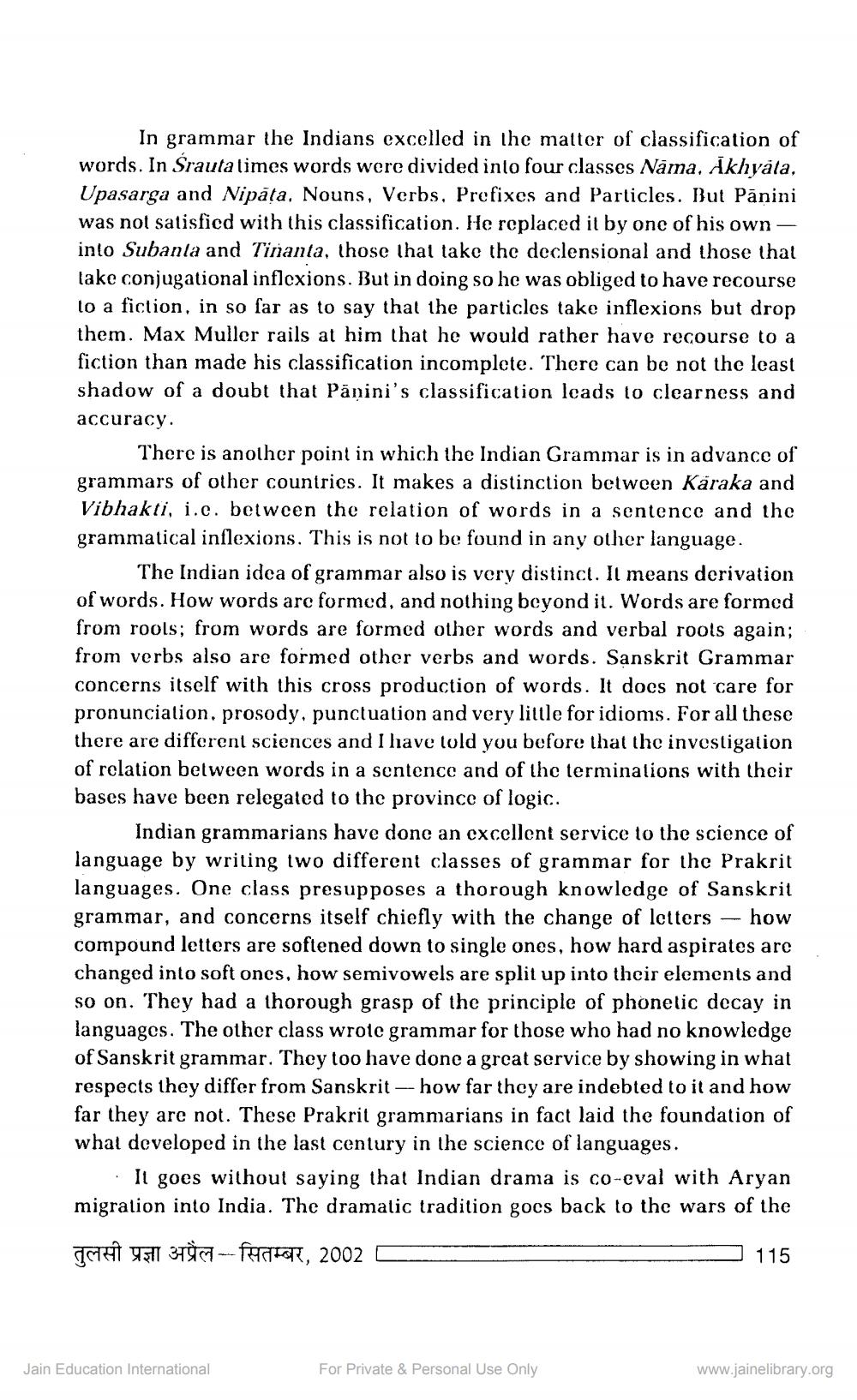________________
In grammar the Indians excelled in the matter of classification of words. In Śrauta times words were divided into four classes Nama. Äkhyāta, Upasarga and Nipāṭa. Nouns, Verbs. Prefixes and Particles. But Panini was not satisfied with this classification. He replaced it by one of his own into Subanta and Tinanta, those that take the declensional and those that take conjugational inflexions. But in doing so he was obliged to have recourse to a fiction, in so far as to say that the particles take inflexions but drop them. Max Muller rails at him that he would rather have recourse to a fiction than made his classification incomplete. There can be not the least shadow of a doubt that Panini's classification leads to clearness and accuracy.
There is another point in which the Indian Grammar is in advance of grammars of other countries. It makes a distinction between Käraka and Vibhakti, i.c. between the relation of words in a sentence and the grammatical inflexions. This is not to be found in any other language.
The Indian idea of grammar also is very distinct. It means derivation of words. How words are formed, and nothing beyond it. Words are formed from rools; from words are formed other words and verbal roots again; from verbs also are formed other verbs and words. Sanskrit Grammar concerns itself with this cross production of words. It does not care for pronunciation, prosody, punctuation and very little for idioms. For all these there are different sciences and I have told you before that the investigation of relation between words in a sentence and of the terminations with their bases have been relegated to the province of logic.
Indian grammarians have done an excellent service to the science of language by writing two different classes of grammar for the Prakrit languages. One class presupposes a thorough knowledge of Sanskrit grammar, and concerns itself chiefly with the change of letters how compound letters are softened down to single ones, how hard aspirates are changed into soft ones, how semivowels are split up into their elements and so on. They had a thorough grasp of the principle of phonetic decay in languages. The other class wrote grammar for those who had no knowledge of Sanskrit grammar. They too have done a great service by showing in what respects they differ from Sanskrit - how far they are indebted to it and how far they are not. These Prakrit grammarians in fact laid the foundation of what developed in the last century in the science of languages.
It goes without saying that Indian drama is co-eval with Aryan migration into India. The dramatic tradition goes back to the wars of the तुलसी प्रज्ञा अप्रैल-सितम्बर, 2002
Jain Education International
For Private & Personal Use Only
115
www.jainelibrary.org




